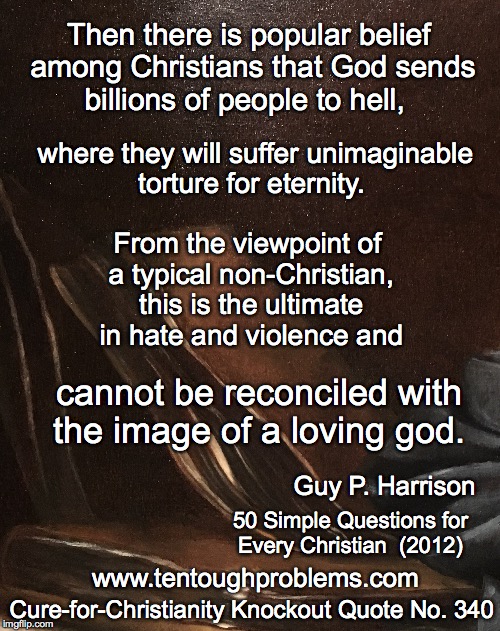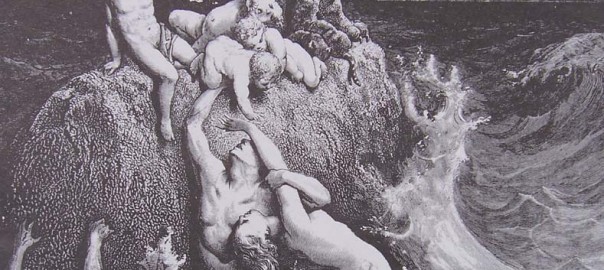






































































Prologue: My Journey Into, Through and Out of Faith

On the northern Indiana prairie where I was raised in the 1940s and 1950s, two religions commanded the loyalty of the locals: basketball and conservative Christianity—and in that order. The energy and devotion lavished on basketball far outpaced unflustered adherence to the obligations of faith. No one would have said that basketball was more important, but the imbalance of emotional investment was obvious. Even today, a drive through Hoosier suburbia reveals this priority. In almost every driveway there is a basketball backboard and hoop. Future archaeologists will be convinced that these were the implements of the dominant cult.
When I was growing up and coming of age, I had zero interest in basketball. I did run the popcorn machine at the basketball games, but the closest I came to playing the game was in high school gym class. I resented this enforced athleticism, and protested by simply standing at one corner of the court while everyone else ran back and forth. A basketball is a hard object , and I—being a 90-pound weakling—was alarmed to have one thrown at me. I even detested the sounds: the squeaking of the shoes on the floor and awful twang of the ball hitting the floor.

The runner-up cult, however, was the one for me.
A Kinder Gentler Approach
Christianity received the full measure of my devotion, largely under the influence of my mother. My oldest brother once said of her—long after we had both walked away from Christianity—that she was the most Christian woman he had ever known. By this he meant that she was guided by compassion and generosity. She really did try to live her faith. When we were growing up, giving children ‘a faith to live by’ was considered an element of good parenting, and my mother was equal to the task.
I don’t say this uncharitably, because I was not subjected to a hard-nosed fundamentalist version of Christianity. I recall no emphasis on guilt, damnation and Hell; there was no trauma in my mother’s version of the faith. Nor was there anything cloying about it. A young friend of mine today, who was raised in an evangelical family in Tennessee, says that a common question that family and friends ask each other is, “How is your walk with the Lord going today?” The companionship of the Lord, it seems, is felt throughout every waking hour, and many people excel at this “God-is-your-pal” brand of Christianity. I never once heard my mother ask anyone, “How is your walk with the Lord going today?” Such smarmy piety was alien to me, even though religion

was part of the fabric of our life: Sunday church attendance was mandatory, as was grace at meals and reading the Bible.
My mother and I read the Bible together.The Billy Graham Crusades were on TV in my teen years, but my mother found him irritating. She had no use for his theatrics, waving the Bible above his head and coaxing tearful conversions to Christ from his listeners. She disdained emotionally charged religion: ‘getting carried away with it’ was
unseemly. My mother prayed, she studied the Bible more deeply than most laypeople do, and if she ever doubted the existence of God, I saw no hint of it. Her faith ran deep, and she got on with life, mindful that God was there and mattered—but she was not checking in with the Lord on an hourly basis.
It’s a mystery to me how my mother, born in Terre Haute, Indiana in 1905, turned out not to be a fundamentalist. She believed in evolution and in a non-literal reading of the Bible. She could say of this or that in the Bible, “Well, you can’t take that literally.” She had a good laugh when I asked if Hell was at the fiery center of the earth.

Immersion in Books
My mother never attended college, but she probably attained the equivalent of a degree by being a voracious reader, until Alzheimer’s wiped her memory clean. She loved biography and history, and assumed that the Bible should be studied as well as read. When I was in high school—and this is crucial to my story—she purchased The Interpreter’s Bible. This was a hefty, 12-volume commentary on the entire Bible, which included, in adjoining columns, the traditional King James translation (1611) and the recently released Revised Standard Version (1947 & 1952). On every page, accompanying these texts, were two other sections aimed at explaining the texts: the exegesis and the exposition. These books were for ministers, for those who were seriously into Bible study.

The exposition was usually written by preachers, who explained the spiritual lessons of every Bible chapter. More often than not, these lessons were unctuous drivel, and even at that early age I could spot at least some of the drivel. The exegesis, however, had substance. This was the science, the research-based analysis of the texts. It was written by scholars and critical issues were tackled: where the texts came from, who wrote them, the meaning of words in the original Hebrew and Greek. It discussed translation problems, contexts and challenges. For the most part, The Interpreter’s Bible was the product of liberal Protestant scholarship, which meant that it was not fundamentalist propaganda about the Bible. The Bible’s flaws, fault lines and contradictions were acknowledged and analyzed candidly, usually without resort to ad hoc arguments to prove that the Bible as God’ infallible word.
I can say, without fear of contradiction, that mother was the only person in town—other than the pastor, possibly—who owned The Interpreter’s Bible. Not long after a new pastor was appointed to our church, mother asked him a question about something she had read in the commentary. He was surprised: “You have The Interpreter’s Bible?”
Of course, these twelve books were at my disposal. I was an enthusiastic teenage Christian, and I was gifted with mother’s curiosity, love of reading and thirst for knowledge. I was drawn to the exegesis, and had no trouble cozying up to liberal Protestant scholarship and adopting a critical attitude toward the Bible. And since my father’s first career had been teaching high school science, we grew up with respect for science; questioning evolution would have been considered eccentric. At that point, belief in God was fairly secure; there may have been a few cracks in my faith, but not many. When I went off to college I was a liberal Christian soldier. Well, I was a priggish liberal. I believed fervently, as my mother did, that swearing, smoking, drinking and sex (outside of marriage) were verboten. [To be continued.]

Copyright 2016, David Madison, PhD, www.tentoughproblems.com